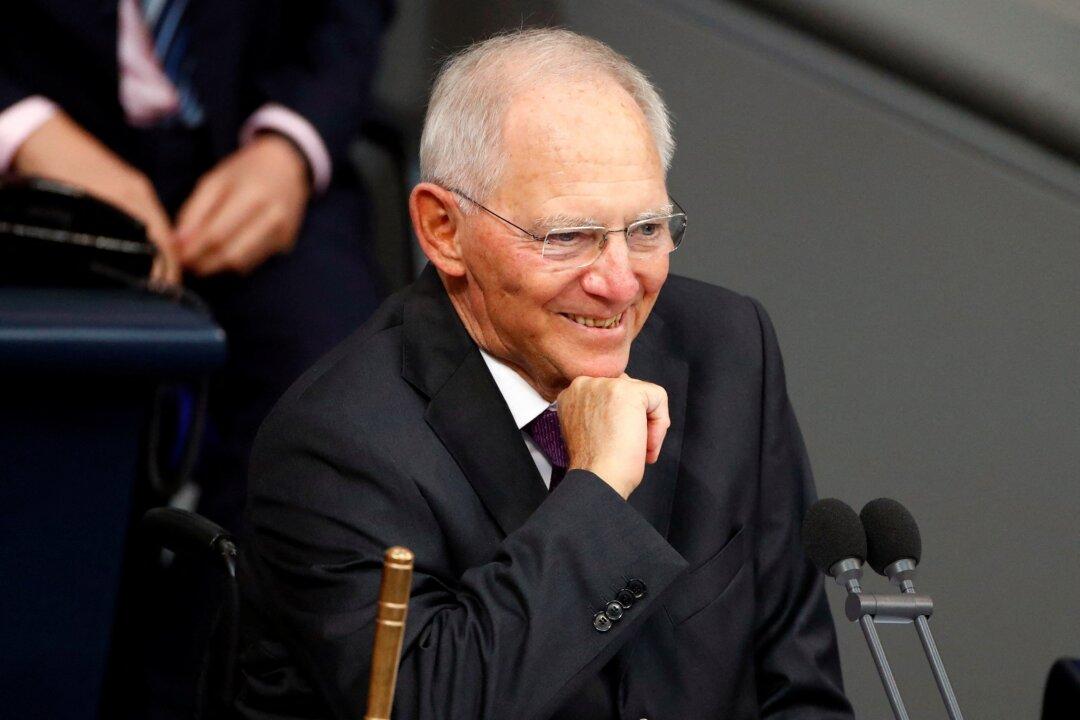BERLIN—Wolfgang Schaeuble, who served as a member of the German parliament for over half a century, has died aged 81, ending one of Germany’s longest political careers in which he helped secure his country’s place at the heart of Europe.
Mr. Schaeuble devoted much of his career to re-unifying his country and later served as former chancellor Angela Merkel’s finance minister during the eurozone debt crisis. He died peacefully late on Tuesday, a spokesperson for the center-right Christian Democrats (CDU) said on Wednesday.





